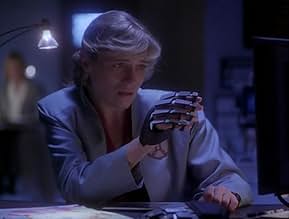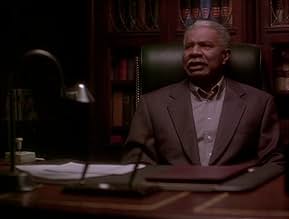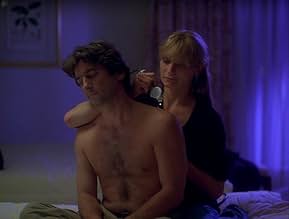The possibility of intimate relations between android and human has been referred to in several motion pictures, notably BLADERUNNER, directed by Ridley Scott, and that is the subject of this poorly composed work, produced for cable television, written by its director Richard Kletter and science fiction author Isaac Asimov, from a short film of Kletter's: "Teach 109". At the Institute For Surgical Research androids are subjects for empirical surgery, as the robotic creatures, formulated with the precise likeness of man but without a soul or an ability to feel pain, are able to express their exact internal physical condition throughout invasive procedures. Harley Jane Kozak portrays Dr. Karen Garrett, a newly fledged surgeon who has been selected by the head of the Institute to perfect a method for correcting a particularly severe cardiac condition, exploiting androids as experimentees. The individual chosen for her surgical task is of an advanced design of replicant played by Griffin Dunne, called Teach, and a burgeoning relationship between it and the doctor occupies the remainder of the romantic comedy. Teach has unexplainedly an eloquently endowed and rebellious personality and the script describes how, when attempting to maintain control of her wayward medical subject, Karen falls in love with it. Upon its persistent request, she smuggles Teach out from the Institute to enable it to learn of the real world and to interrelate with humans, and the film's problems become overwhelming at that point. A most obvious difficulty is in acceptance of Karen's abrupt metamorphosis from a dedicated and ambitious surgeon into a rather giddy and love-struck amorosa of an artificial being. Dunne and Kozak are noted for performing in roles emphasizing their talents for the expression of wry humour; Dunne responds well to strong direction (not available here) whereas Kozak has too limited an acting range to do much with this thinly written piece. A highly episodic scenario offers copious holes: the "outside world" into which the oddly matched lovers escape in this story set in the future has a remarkable similarity to contemporary Toronto, the streets of which are cleansed of human life whenever the storyline requires gunfire or other excessive activity; the casting is quaint with seemingly significant characters vanishing from the plot; there is precious little character development in lieu of inclusion of "twists" that don't and plot surprises that employ a telegraph; poor Kozak is given perhaps the most ludicrous line when she avows to the android: "You are the love of my life" - not edited properly, so that we are privy to the beginning of her afterlaugh - typical of this slipslop production.































